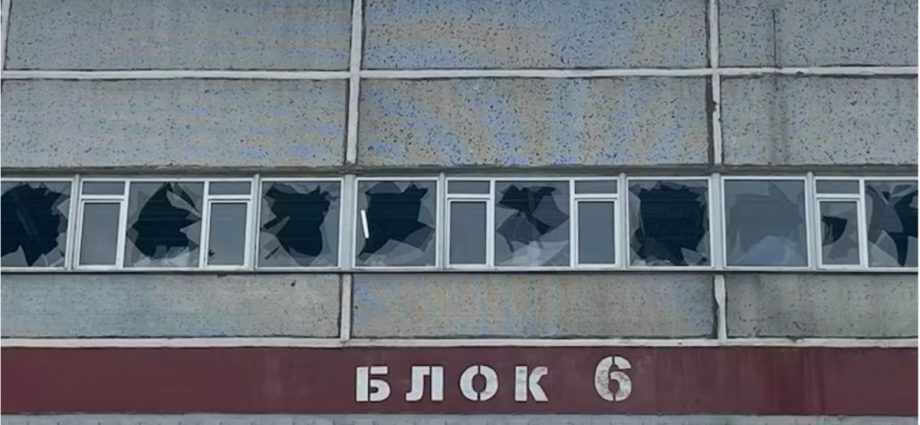In the escalating military conflict between Ukraine and Russia, the Argentine-Italian director general of the International Atomic Energy Agency (IAEA), Rafael Mariano Grossi, became the world’s last diplomat though his work circumventing Armageddon at Europe’s largest nuclear power plant, the Zaporizhzhia plant in the Russian-occupied city of Enerhodar.
Grossi, who like his Argentine-Italian counterpart Pope Francis, originally hails from the Piedmont Region of Italy, managed to have the warring leader of Russia, Vladimir Putin, and Ukrainian President Volodymyr Zelensky agree to a ceasefire and deployment of IAEA inspectors at the Zaporizhzhia Nuclear Power Plant (ZNPP).
In Washington this month for high-level meetings including with US Energy Secretary Jennifer Granholm, Grossi said he remains appalled by the level of complacency regarding the nuclear power plant and the risk it poses to the global community, the first time in history when an operating civilian nuclear plant has been involved in a military conflict.
On March 9, Grossi reported to the IAEA that a nuclear incident was narrowly avoided after ZNPP was forced to use all its diesel generators when the plant’s off-site power was cut off after its last remaining 750-kilowatt line was disconnected.
“I am astonished by the complacency – what are we doing to prevent this happening? We are the IAEA, we are meant to care about nuclear safety. Each time we are rolling a dice. And if we allow this to continue time after time then one day our luck will run out,” Grossi said.
A nuclear accident or intentional strike on Zaporizhzhia would be roughly equivalent of more than six Chernobyl disasters, making much of Russia, Ukraine, and a good part of Western Europe barren for decades from radioactive fallout.
The Chernobyl disaster of April 26, 1986, proved to be the pinnacle of Soviet arrogance and the beginning of the end for Mikhail Gorbachev. The area nestled in the border area between Ukraine and Belarus remained a no man’s land until Russian troops illogically decided to invade and loot the site.
Grossi said he is seeking a formal agreement between Russia and Ukraine over safety of all nuclear plants but is meeting resistance from both countries’ military leaderships. He said that for the first time in his career he has “green men,” military officers, sitting in on talks with those responsible for nuclear safety and security.
However, Grossi said he has been able to deploy IAEA safety and security officials to Ukraine’s other nuclear plants to safeguard them from future attacks and operational accidents.
Former Ukrainian finance minister Natalie Jaresko said Russia had made the destruction of Ukrainian infrastructure one of its main objectives.
“All the missiles are hitting infrastructure and not military targets. They want to destroy the Ukraine economy,” said Jaresko, who is also the US-based strategic adviser to Ukraine Invest.
Nuclear energy is another reason Ukraine will undoubtedly become a significant economic engine when it becomes a full member of the European Union after the eventual defeat of Russian forces.
Before February 24, 2022, Ukraine’s 15 nuclear power plants provided more than 55% of the country’s energy needs, and it recently signed a US$10 billion contract with Pittsburgh-based Westinghouse to build two nuclear AP1000 power plants at Khmelnitsky, some 250 kilometers east of Lviv.
The top nuclear-plant operator in the United States, the Southern Company, is currently working with Westinghouse and Arlington, Virginia–based Bechtel to build some six nuclear power plants by 2043, the company’s chairman and CEO Tom Fanning said in an interview with Capitol Intelligence/CI Ukraine.
Europe’s largest economy, Germany, was already feeling the hard economic effects of its decision to decommission nuclear plants even before the Ukraine invasion – significantly higher energy costs and the return of acid rain.
The efficacy of Grossi’s efforts in getting the two warring parties to agree to the IAEA’s intervention – the only intergovernmental group operating in the occupied regions of Ukraine – was confirmed in December when the IAEA voted by acclamation to reappoint Grossi to another four-year term.
When asked how he got the IAEA’s US representative Laura Holgate and Russia’s Mikhail Ulyanov to agree on his reappointment, Grossi quipped: “I guess no one else wanted the job.”
Peter K Semler is the chief executive editor and founder of Capitol Intelligence. Previously, he was the Washington bureau chief for Mergermarket (Dealreporter/Debtwire) of the Financial Times and headed political and economic coverage of the US House of Representatives and Senate.




